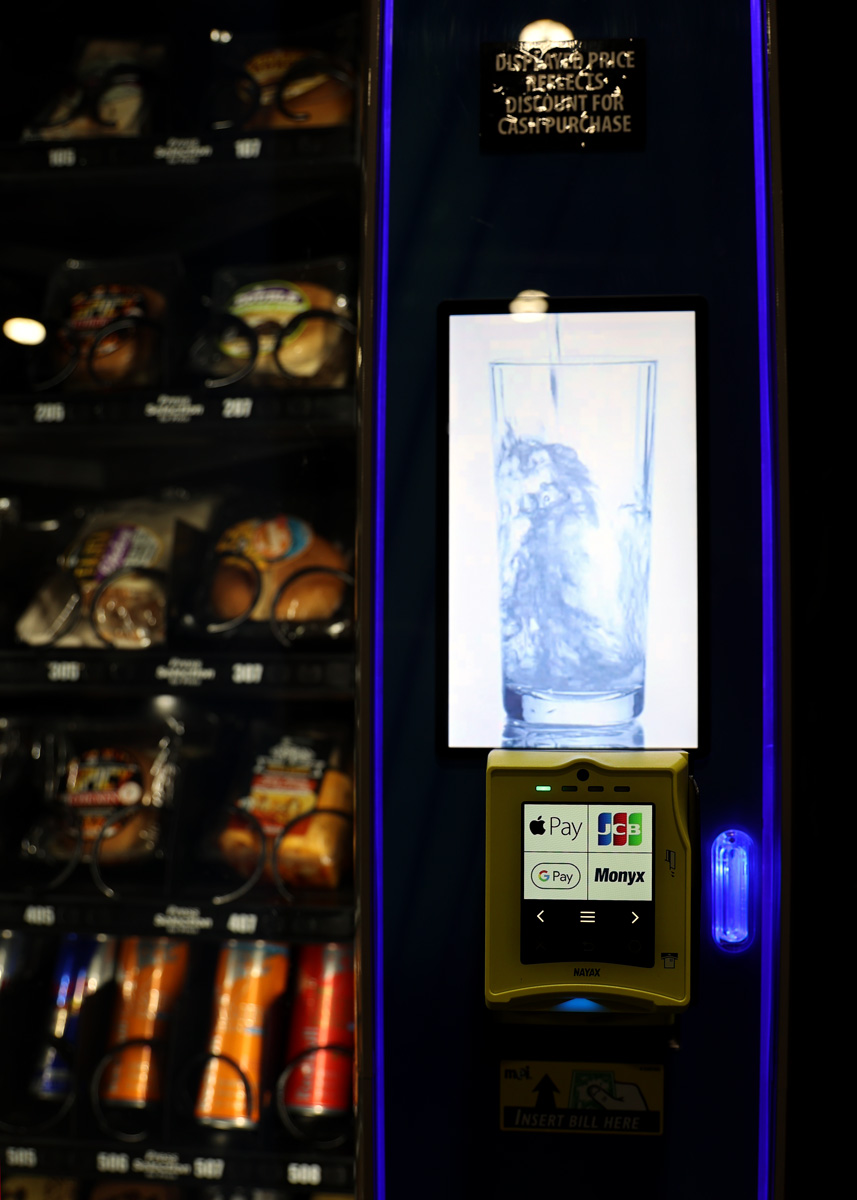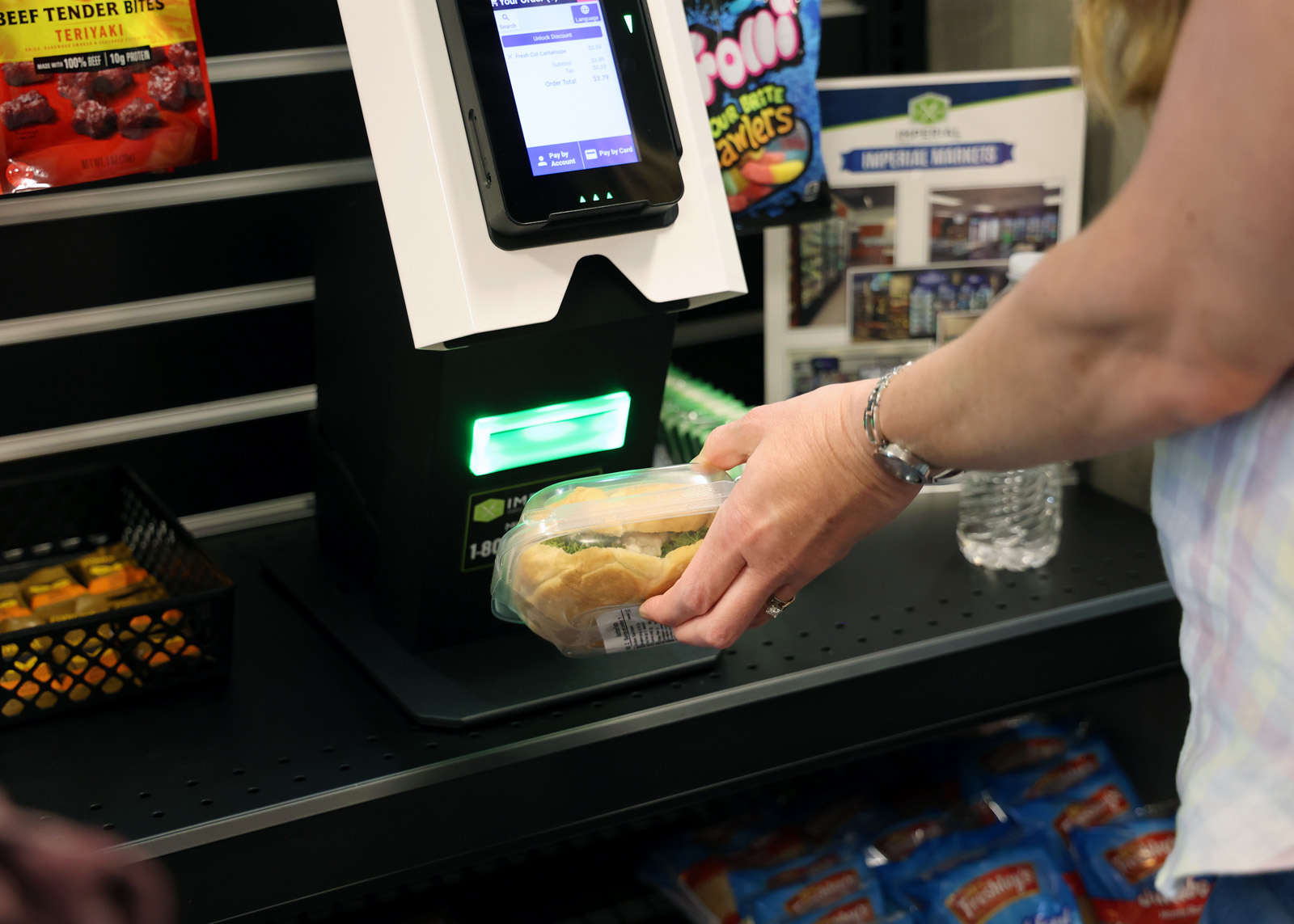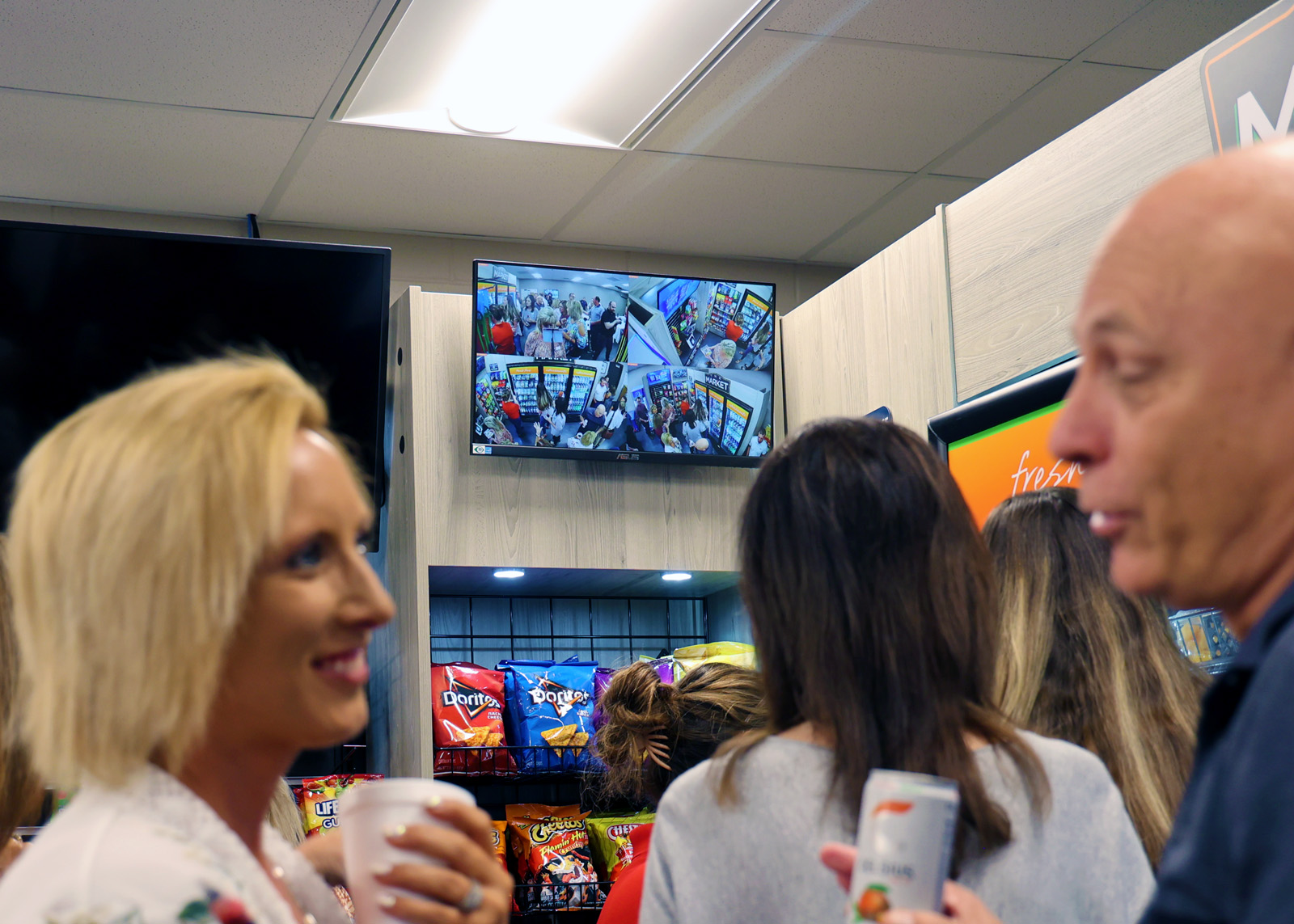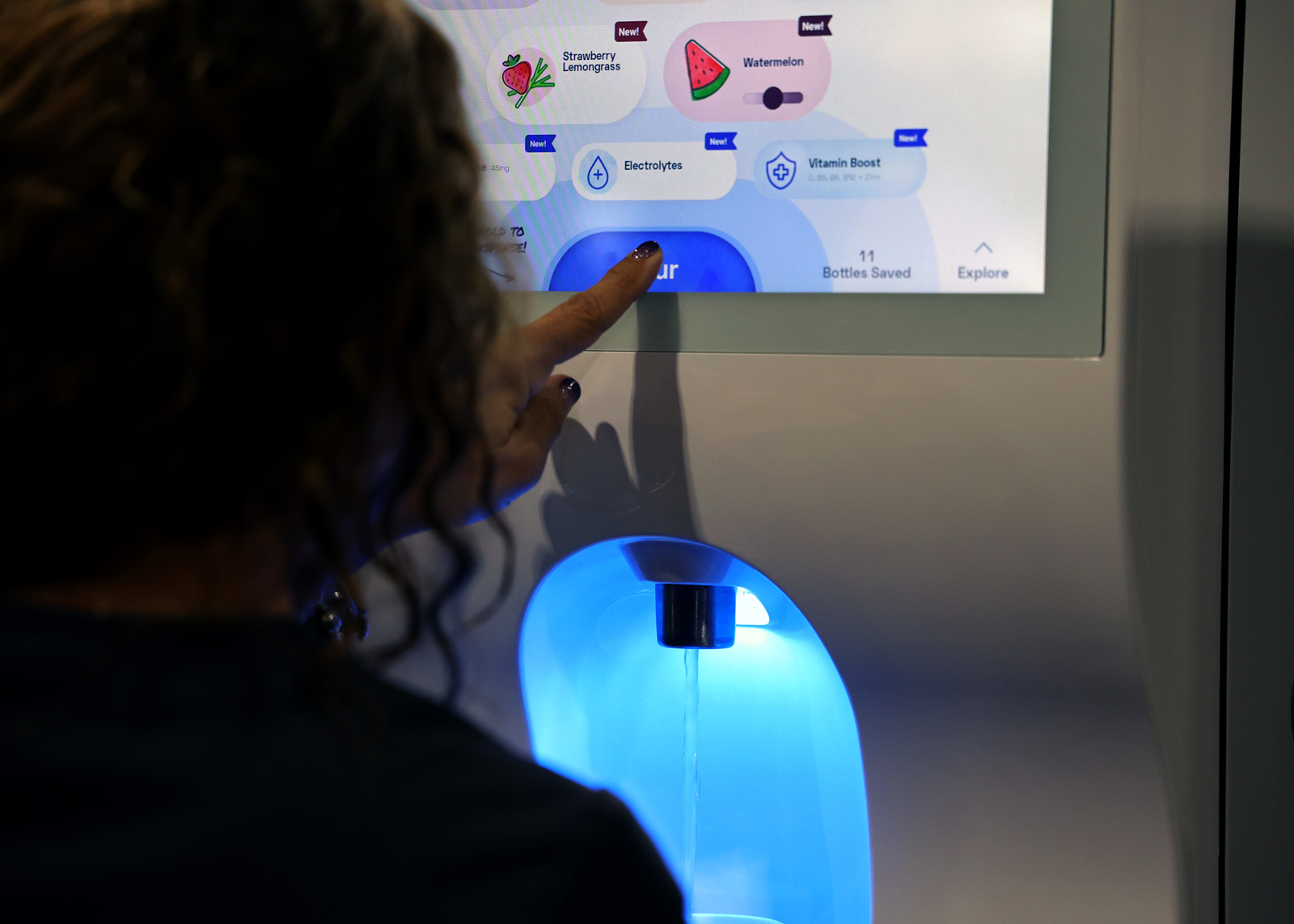The vending, food and coffee service business, Imperial Company, officially held a ribbon cutting and a grand opening of its new $8 million Rogersville facility at the end of June 2024.
Imperial specializes in vending services, micro markets, catering, corporate dining and coffee services. It officially began its move into Rogersville in the summer of 2023, and held a ribbon cutting ceremony June 27, 2024. The 67,000-square foot facility marks a continued investment into Imperial's expansion efforts in the Springfield-metro area.

Tulsa, Oklahoma-based Imperial started in 1979 as a one-man coffee service and has climbed the ranks to become one of the largest businesses in its industry. The company now boasts more than $195 million in annual sales and more than 850 employees. It serves clients in Oklahoma, Arkansas, Texas, Kansas, Iowa, Illinois and Missouri, according to a company press release. Imperial serves more than 9,000 customers.
In 2021, Imperial purchased Kinney Vending and Jackson Brothers of the South Vending, giving the company a footprint in the Joplin and Springfield areas, according to the press release. The new Rogersville facility is the third-largest plant in the company, behind Tulsa and Oklahoma City, and one of 16 branches of the food-service company.
“We are committed to investing in growth and are excited about our expansion into the Springfield market with our new facility,” Lance Whorton, Imperial president, said in the press release.
Technology changing the vending industry in unexpected ways

The industry hasn't changed too much since Imperial entered the vending machine game in 1993, with the exception of all the technological advances, including payment options, said Jason Douglas, operations manager.
“Over the years, vending has kind of stayed the same,” Douglas said on the floor of the new Rogersville facility. “Probably the biggest change over the years is technology.”
Each model of vending machine has telemetry and radar “that works kind of like a cell phone signal,” Douglas said. The technology allows each machine to keep track of inventories, so Imperial knows exactly how much of each product is in every single machine in its arsenal at any given time.
“When we pull orders for each machine, we know exactly how much goes in there,” Douglas said. “It enables us to fill the machines up completely.”

As a driver departs the Rogersville plant, their vehicle is filled with totes that were packaged in the sorting room at Imperial. Each tote is for a specific vending machine at a specific location, and each tote contains only products that are needed to be stocked in that machine.
The sorting room uses a warehouse pick system called Lightspeed, which uses rows of totes and lights that change colors to denote to employees which totes need to be filled with which products. Employees fill each machine's tote with the specific items needed and those totes are loaded into trucks to be delivered.
Cash is no longer king, alternative pay options gain steam
That's a far cry from how things used to be in the vending world, Douglas said.

“Back in the day, our drivers would go out to the truck and pull out a little of everything and come out and throw it in a machine,” Douglas said. “Now, all the orders are pre-pulled and ready to go.”
“It just enables us to be very specific on every single product on every single machine and that just helps us in a myriad of ways.”
Along with technical advances in vending management, Imperial has seen the industry change when it comes to pay options, which have often been dependent on the latest technological developments, Douglas said. Credit card readers as well as options like Apple Pay have skyrocketed in popularity in recent years.
The pre-loaded totes mean less food and drink is sitting on a hot truck, and the streamlined procedure helps reduce waste. Imperial does not charge for equipment for vending, and places machines and products based on the size of the company and location.
“We're slowly but surely going away from cash,” Douglas said. “The less we deal with cash and change, the better it is for everyone.”
The trucks that carry cold food and drinks have all the new technological bells and whistles like engine-driven refrigeration and an advanced temperature monitoring program. Imperial is always looking to update its fleet with new technology. While Imperial has 98 trucks that carry cold food to 16 branches, the company has about 600 vehicles that it manages, Imperial Chief Operating Officer John Slaughter said.
“The next version of technology will be solar paneled, probably,” said Michael Dry, vice president of food production and food handling. Dry said the new Rogersville facility cost about $8 million to construct.
Imperial's micro-market concepts now drive more than 50% of revenue

Starting off as a coffee service company and later finding its foray into vending, Imperial has expanded to a number of new ventures since its founding. On top of vending and coffee, Imperial offers hydration services that include water and sparkling water machines and pallet-loads of Powerade and Gatorade delivered to customers with many employees.
Then there's the new way of vending, what Imperial calls “micro-markets,” Whorton said. Essentially, picture an unstaffed, open market full of fresh food, snacks and drinks that uses a self-checkout kiosk and cameras to prevent theft. Markets are custom-tailored to the business and its employees, bringing a convenience store to the breakroom.
Market concepts now account for more than 50% of Imperial's total annual revenue, Whorton said. Besides being placed in companies, markets are also put on college campuses and other venues where they can be accessed 24/7. Even with unmanned kiosks, the company isn't seeing too much stealing.

“If you ever need, like, a boost that humanity is not completely in the trash can yet, out of all the micro-markets that we have, the actual shrink number — or theft number — is around 2% to 3%,” Whorton said. “It can get higher at certain locations.”
The market concept is growing at a staggering pace and Imperial expects that sector to continue to grow in revenue in each year, said Stephen Robinson, market route manager for Imperial.
“This is going to be really the next wave of vending and something we see growing at an unprecedented pace,” Robinson said.
Fresh-baked food everyday at markets and vending options

Imperial's vending machines and micro-markets are filled with hundreds of items baked and prepared fresh daily at the company's headquarters in Tulsa, Oklahoma. The company boasts about 50 different recipes and produces about 7 million products every year, Dry said.
Orders are sent out from branches in the morning and baking begins at 4 a.m. the following day at the in-house kitchen inside the company's Tulsa headquarters. The food items made there are loaded into trucks and delivered to the company's 16 branches, including the Rogersville site.
What is made one morning will be in Imperial's vending machines and micro-markets within 24 hours, giving the company one of the fastest turnarounds in the vending industry, Dry said.
“Nobody else does it as fast as we do and as fresh as we do,” Dry said. “We design and have total integration of the manufacturing process.”

Given Imperial's size and history, the food production side of the company and the logistics of shipping those products across seven states every day is impressive, said Emily Kinney, general manager.
“The fact that we — at our size — that we can produce our own food fresh every single day is amazing to me,” Kinney said.
The food production arm of the Imperial Company comes with a lot of pride, Whorton said.
“If you make one person sick, the whole world is going to hear about it, so we put a lot of time and energy into this,” Whorton said. “We put so much pride and money into just having our own products and making our own food.”

